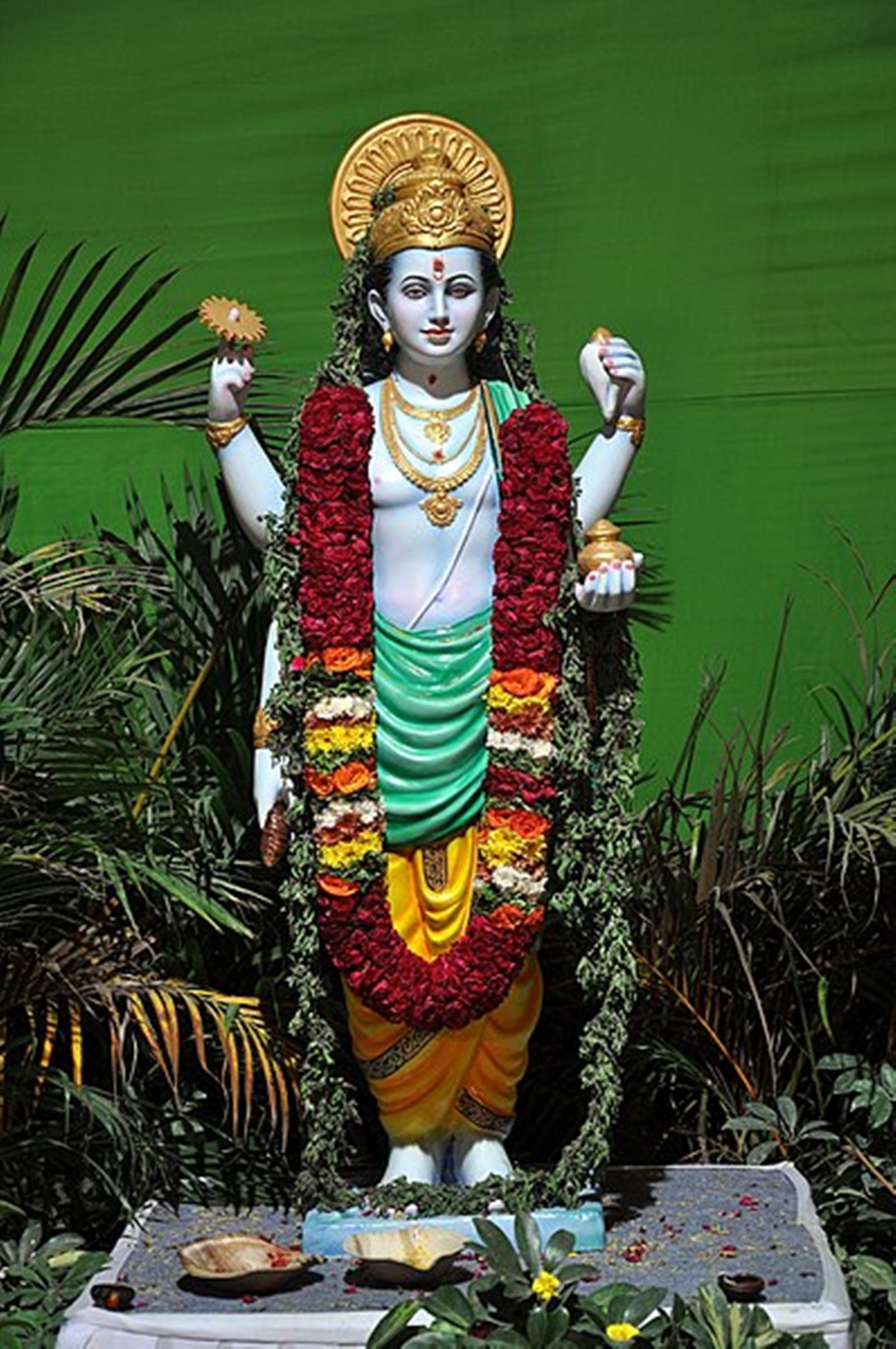Why is Dhanvantri’s birth anniversary observed as Ayurveda Day? Also, why is he worshipped on Dhanteras? We explain.

What is Ayurveda Day?
Ayurveda is the ancient Indian school of medicine that focuses on holistic well-being. The central government started Ayurveda Day celebrations in 2016 to create more awareness about Ayurveda. The birth anniversary of Dhanvantri was chosen to mark this day, as Dhanvantri is considered the physician of Gods. He is also considered to be an incarnation of Lord Vishnu.
Story continues below this ad
 Dhanvantari is often depicted with four hands, holding a pot of amrita, a discus, a conch, and a leech. (Photo: Wikimedia Commons)
Dhanvantari is often depicted with four hands, holding a pot of amrita, a discus, a conch, and a leech. (Photo: Wikimedia Commons)
“The term Ayurveda denotes the “knowledge of life”. Government of India has been observing Ayurveda Day every year on Dhanawantari Jayanti (Dhanteras) since 2016 to raise awareness about Ayurvedic principles, medicinal herbs, and lifestyle practices. In India, the knowledge of Ayurveda is attributed to Dhanawantari, the divine physician who received this knowledge from the Lord Brahma. Ayurveda Day honors Lord Dhanvantari’s contributions, aiming to raise awareness about Ayurveda’s foundational principles, healing practices, and lifestyle approaches,” an article by the government’s Press Information Bureau (PIB) states.
The logo of the National Medical Commission (NMC) also features a colourful image of Dhanvantri.
For Ayurveda Day 2024, the theme is ‘Ayurveda Innovation for Global Health’, and the focus is on four areas: women’s health, workplace wellness, school wellness programmes, and food innovation.
Who is Dhanvantri, why is he worshipped on Dhanteras?
Dhanvantri is believed to have appeared from the ocean bearing a pot of amrita (nectar of immortality) during ‘samudra manthan’, or the churning of the ocean by the Devas and the Asuras.
Story continues below this ad
According to author Devdutt Pattanaik, Brahma had advised the Devas to churn the ocean of milk for amrita. The mountain Mandara was placed on the back of Akupara, king of turtles, and the churning was done using the serpent Vasuki.
After Dhanvantari appeared carrying amrita, Lord Vishnu took the appearance of Mohini, and, tricking the asuras, distributed it to the Devas.
Dhanvantri, thus, is worshipped on the day of his appearance to pray for good health, and a nourished, robust life.
“It is believed that first, Dhanvantri appeared during the samudra manthan, and then Goddess Lakshmi in the evening. Lakshmi after her appearance chose to wed Lord Vishnu. Thus, on the day of Dhanteras, both Dhanvantri and Lakshmi are worshipped, for good health, prosperity, and all things auspicious,” Dr Dipakbhai Jyotishacharya, who runs the Parashar Jyotishalaya in Gujarat’s Vapi, told The Indian Express.
Story continues below this ad
Kuber, the treasurer of the Gods, is also worshipped on Dhanteras.
The website of Alandi Ayurveda Gurukula, based in Colorado, narrates another belief, according to which Dhanvantri in an incarnation appeared on Earth as the King of Kashi, Divodasa. In this form, he passed on the knowledge of Ayurveda, which he had learnt from Lord Brahma, to a group of sages, which included Susruta, the great Indian surgeon.
Dhanvantari is often depicted with four hands, holding a pot of amrita, a discus, a conch, and a leech. Sometimes, along with amrita and conch, he is shown holding scriptures and herbs.



 Dhanvantari is often depicted with four hands, holding a pot of amrita, a discus, a conch, and a leech. (Photo: Wikimedia Commons)
Dhanvantari is often depicted with four hands, holding a pot of amrita, a discus, a conch, and a leech. (Photo: Wikimedia Commons)




































